The Hidden Dangers in Your Pool: How to Detect and Prevent Them
Imagine you’re floating peacefully in your backyard pool, the water gently caressing your skin like a soothing embrace. But beneath the surface, there may be hidden dangers lurking, waiting to disrupt your tranquil oasis. From the toxic chemicals used to maintain water clarity to the potential hazards of water contamination, pool drain entrapment accidents, and the ever-present risk of drowning, it’s crucial to be aware of the potential threats that can turn your paradise into a nightmare. In this discussion, we will uncover the hidden dangers in your pool, equip you with the knowledge to detect them and provide essential tips to prevent these hazards from becoming a reality. So, before you take another dip, let’s dive deeper into the world of pool safety.
Key Takeaways
- Following the manufacturer’s instructions and warning labels for pool chemicals is crucial to ensure safety.
- Regularly testing and maintaining water filtration systems and monitoring pH and chlorine levels is essential to prevent water contamination.
- Proper installation and regular inspection of pool drain covers, along with educating pool users about the dangers of pool drains, can help prevent accidents.
- Adhering to water safety regulations, maintaining appropriate water depth, and providing proper lifeguard training are important measures to prevent drowning incidents.
Pool Chemicals: Understanding the Risks
Understanding the risks associated with pool chemicals is crucial for maintaining a safe and healthy swimming environment. Pool chemical safety and proper handling are essential to ensure the well-being of both swimmers and pool operators.
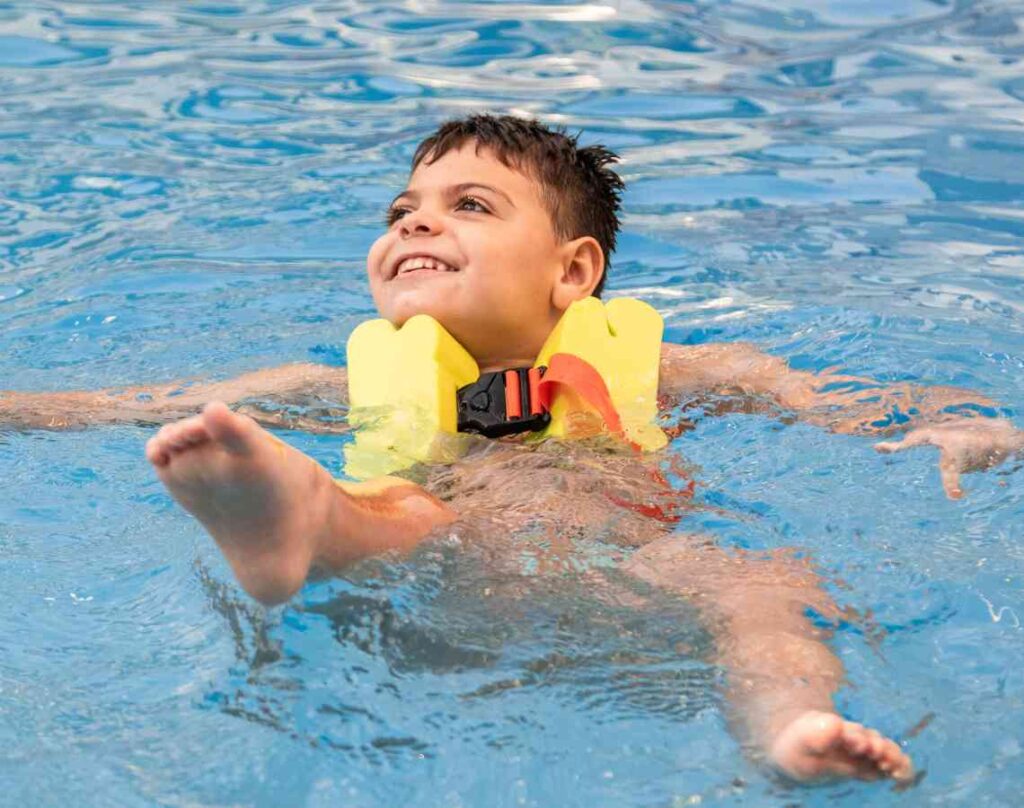
When it comes to pool chemical safety, it is important to handle these substances with care. Always read and follow the manufacturer’s instructions and warning labels. This includes wearing protective equipment such as gloves and goggles to minimize the risk of exposure to harmful chemicals. In addition, never mix different pool chemicals, as this can create dangerous chemical reactions.
Proper handling of pool chemicals also involves storing them in a cool, dry, and well-ventilated area. Keep them away from other flammable substances and out of reach of children and pets. It is also crucial to regularly inspect and maintain the containers to prevent leaks or spills.
If you are unsure about how to handle or use a particular pool chemical, consult a professional or contact your local pool supply store for guidance. They can provide valuable advice and recommendations to ensure that you are using the chemicals safely and effectively.
Water Contamination: Identifying Potential Hazards
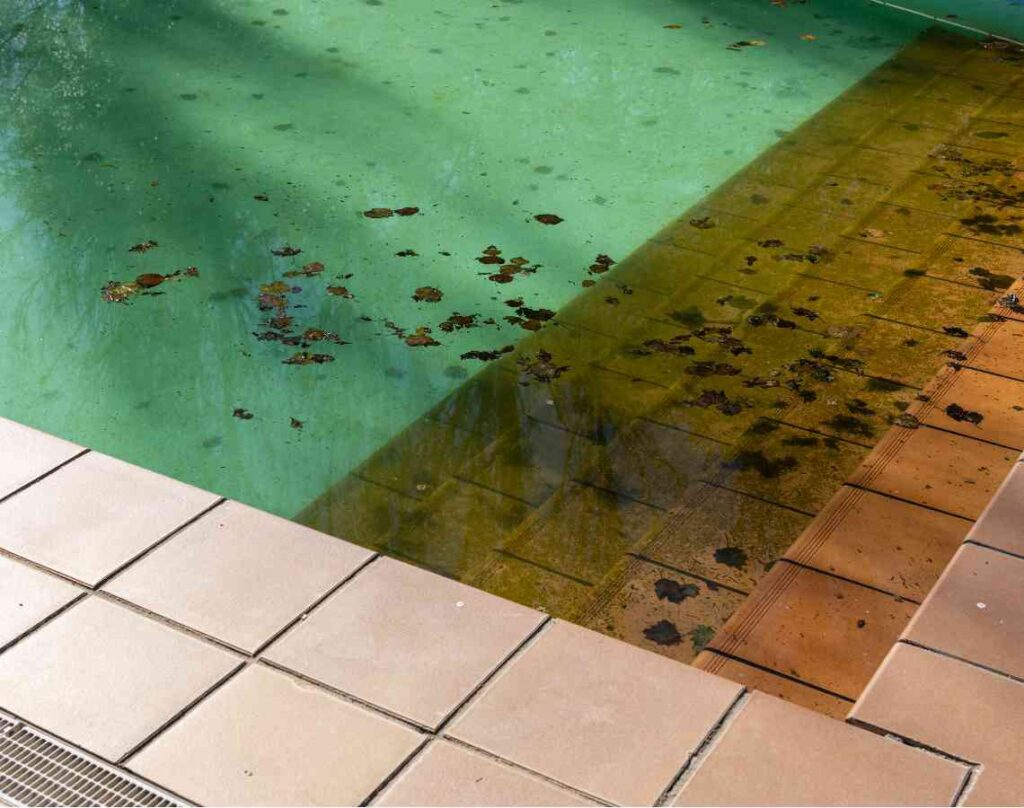
To ensure the safety of swimmers and maintain a clean and healthy swimming environment, it is essential to be aware of potential hazards that can contaminate the pool water. One of the most significant concerns when it comes to water contamination is the risk of waterborne illnesses. These illnesses can be caused by bacteria, viruses, or parasites present in the pool water. Common waterborne illnesses include gastrointestinal infections, skin infections, and respiratory problems.
To prevent waterborne illnesses, it is crucial to have effective filtration systems in place. Filtration systems help remove dirt, debris, and microorganisms from the water, ensuring that it remains clean and safe. Regular maintenance and cleaning of the filtration system are essential to ensure its optimal performance. This includes cleaning or replacing the filters as recommended by the manufacturer.
In addition to filtration systems, proper water chemistry is also vital in preventing water contamination. Regular testing and monitoring of the pool’s pH and chlorine levels are necessary to maintain a balanced and sanitized swimming environment. High levels of chlorine can cause skin and eye irritation, while low levels can lead to the growth of harmful bacteria.
Pool Drain Safety: Preventing Entrapment Accidents
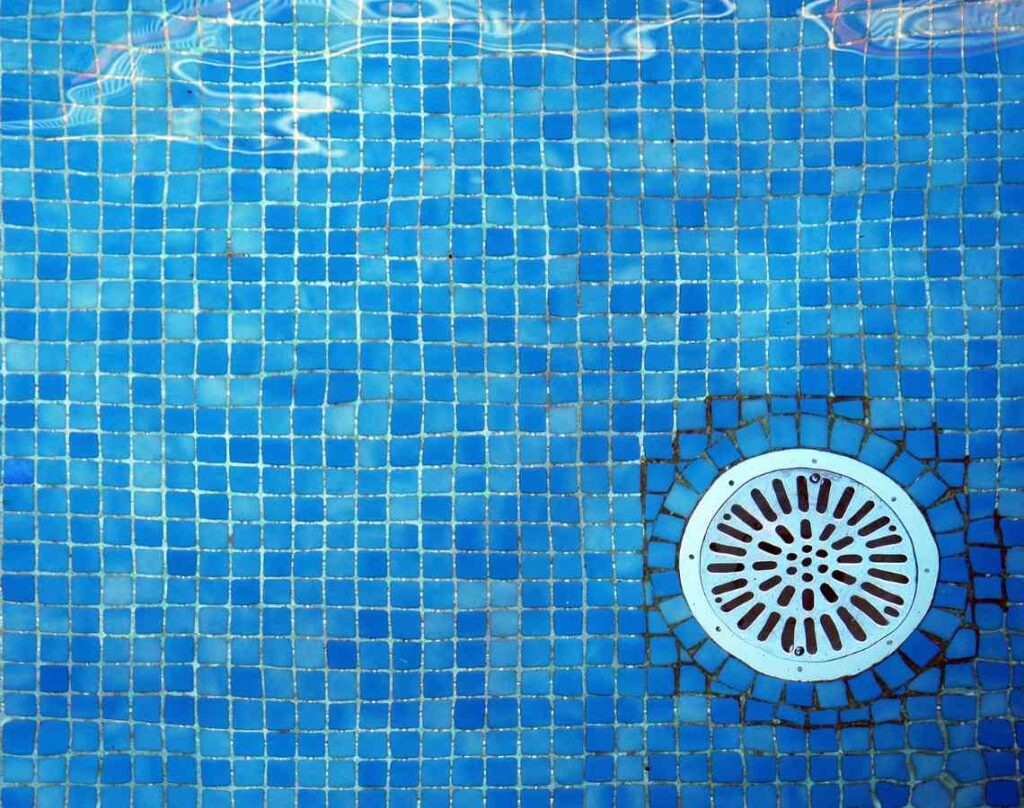
Pool drain safety is an important aspect of maintaining a safe and secure swimming environment for all pool users. One of the major risks associated with pool drains is suction entrapment, which occurs when a person’s body or hair gets caught in the drain due to the powerful suction created by the pool’s filtration system. To prevent such accidents, it is crucial to have pool drain covers installed properly. These covers are designed to prevent entrapment by creating a barrier between the drain and swimmers. They should be regularly inspected to ensure they are in good condition and securely fastened. Additionally, it is important to educate pool users about the potential dangers of pool drains and how to avoid them. Swimmers should be advised to stay away from drains and to never swim near them. It is also recommended to teach children to tie up their hair or wear swim caps to prevent it from getting tangled in the drain. By implementing these safety measures, you can significantly reduce the risk of pool drain entrapment accidents and create a safer swimming environment for everyone.
Drowning Prevention: Essential Safety Measures
Implementing essential safety measures is crucial for preventing drowning incidents in pools. To ensure the safety of everyone in and around the pool, it is important to adhere to water safety regulations and provide proper lifeguard training.
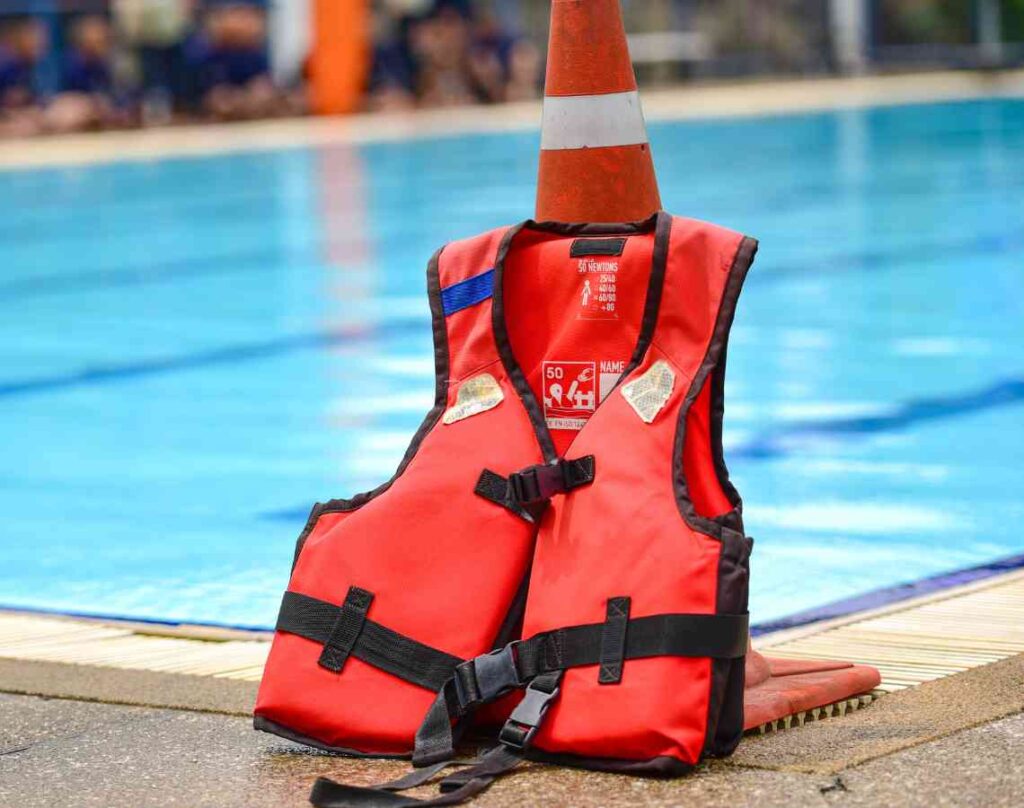
Water safety regulations play a vital role in preventing drowning incidents. These regulations outline the necessary precautions, such as maintaining appropriate water depth, installing safety barriers, and ensuring the presence of safety equipment like life jackets or floatation devices. Adhering to these regulations helps create a safe environment for swimmers and reduces the risk of accidents.
Proper lifeguard training is another essential safety measure to prevent drowning incidents. Lifeguards are trained to identify potential dangers, respond effectively in emergencies, and perform life-saving techniques such as CPR. Their presence and vigilance can greatly reduce the risk of drowning. Lifeguard training should include regular updates on water safety protocols, rescue techniques, and first aid skills to ensure they are well-equipped to handle any situation that may arise.
Maintenance and Inspection: Ensuring a Safe Pool Environment
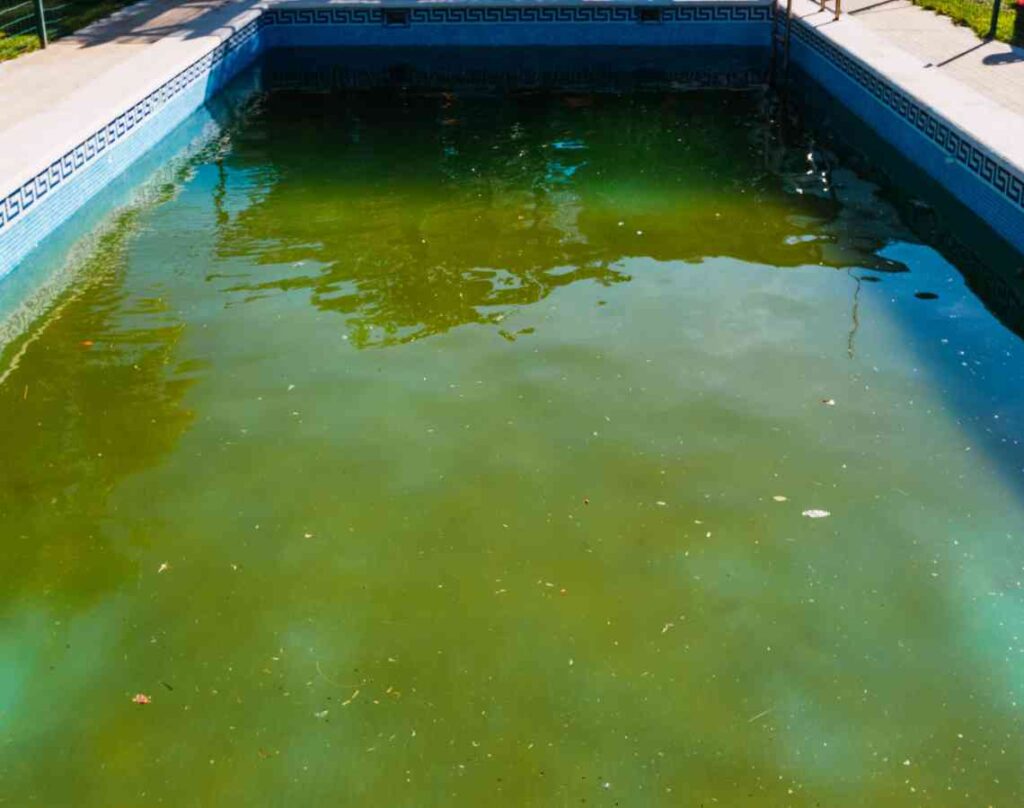
Regular maintenance and thorough inspections are essential for creating a safe environment in your pool. By properly maintaining your pool equipment and regularly testing the water, you can prevent potential hazards and ensure the safety of those who use your pool.
To help you understand the importance of maintenance and inspection, here is a table that outlines some key aspects to focus on:
| Pool Equipment | Regular Testing |
| Filters | Check and clean regularly |
| Pumps | Inspect for leaks or malfunctions |
| Chemicals | Test and balance regularly |
| Drain Covers | Ensure they are secure and in good condition |
| Safety Equipment | Inspect and replace as needed |
| Electrical Systems | Regularly check for any signs of damage or malfunction |
Regularly testing the water in your pool is crucial to maintain safe chemical levels. This includes testing the pH, chlorine, and alkalinity levels to ensure they are within the recommended ranges. By doing so, you can prevent the growth of harmful bacteria and keep the water clean and safe for swimming.
In addition to testing the water, inspecting the pool equipment is equally important. Filters should be checked and cleaned regularly to ensure they are functioning properly. Pumps should be inspected for any leaks or malfunctions that could affect the water circulation. It is also essential to regularly test and balance the chemicals in your pool to maintain a healthy swimming environment.
Learn more about pool safety here.
Frequently Asked Questions
How Often Should I Clean My Pool Filters?
You should clean your pool filters regularly to keep them in good condition. Signs of dirty pool filters include reduced water flow and cloudy water. Regular maintenance will help prevent potential dangers in your pool.
Are There Any Specific Warning Signs to Look Out for if My Pool Water Is Contaminated?
If your pool water is contaminated, there are several warning signs you should look out for. These include cloudy or discolored water, foul odors, excessive foam or bubbles, and skin irritation after swimming. Detecting pool water contamination early is crucial for maintaining a safe and healthy swimming environment.
Can Improper Pool Chemical Use Cause Skin Irritation or Other Health Issues?
Improper pool chemical use can cause skin irritation and other health issues. It’s important to prioritize pool chemical safety and be aware of the potential hazards that can arise from contaminated pool water.
What Should I Do if I Suspect Someone Has Been Entrapped by a Pool Drain?
If you suspect someone has been entrapped by a pool drain, it is crucial to act quickly. Follow pool drain entrapment protocols and immediately call for help. Regular pool safety inspections are vital to prevent such incidents.
Is There a Recommended Age for Children to Start Swimming Lessons?
The recommended age for children to start swimming lessons is typically around 4 years old. Early swimming lessons can provide numerous benefits such as water safety skills, improved coordination, and increased confidence in the water.

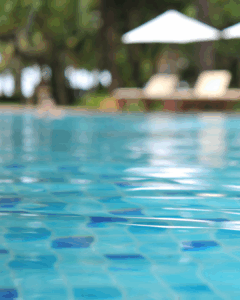

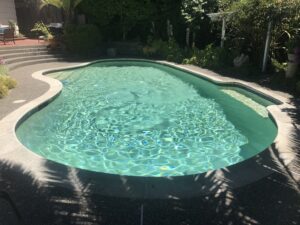


 Alex Cota
Alex Cota  Sophie Pekic
Sophie Pekic Rudy Reyes
Rudy Reyes  Mark Harlan
Mark Harlan Kevin Hall
Kevin Hall 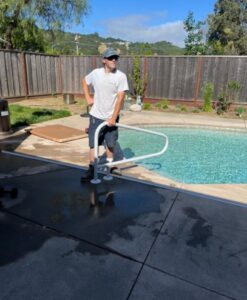 Howard (Howie) Van Lare
Howard (Howie) Van Lare  Chris Cavalerro
Chris Cavalerro 

 Betty Garmendina
Betty Garmendina George Wallace
George Wallace Zach Zastrow
Zach Zastrow Jorge Salazar Bernal
Jorge Salazar Bernal Mike Watson
Mike Watson Jane Ciuchta – Hired 2015
Jane Ciuchta – Hired 2015 Bruce Muir – Hired 2020
Bruce Muir – Hired 2020 David-Metzger – Hired 2014
David-Metzger – Hired 2014 Robin Clarke – Hired 2019
Robin Clarke – Hired 2019 Maddi Davidson – Hired 2022
Maddi Davidson – Hired 2022 John Albachten – Hired 2015
John Albachten – Hired 2015 Jay Bergmann – Hired 2023
Jay Bergmann – Hired 2023 Summer Venegas – Hired 2017
Summer Venegas – Hired 2017 Rebecca Jones – Hired 2015
Rebecca Jones – Hired 2015 Jane Doe – Hired 2014
Jane Doe – Hired 2014